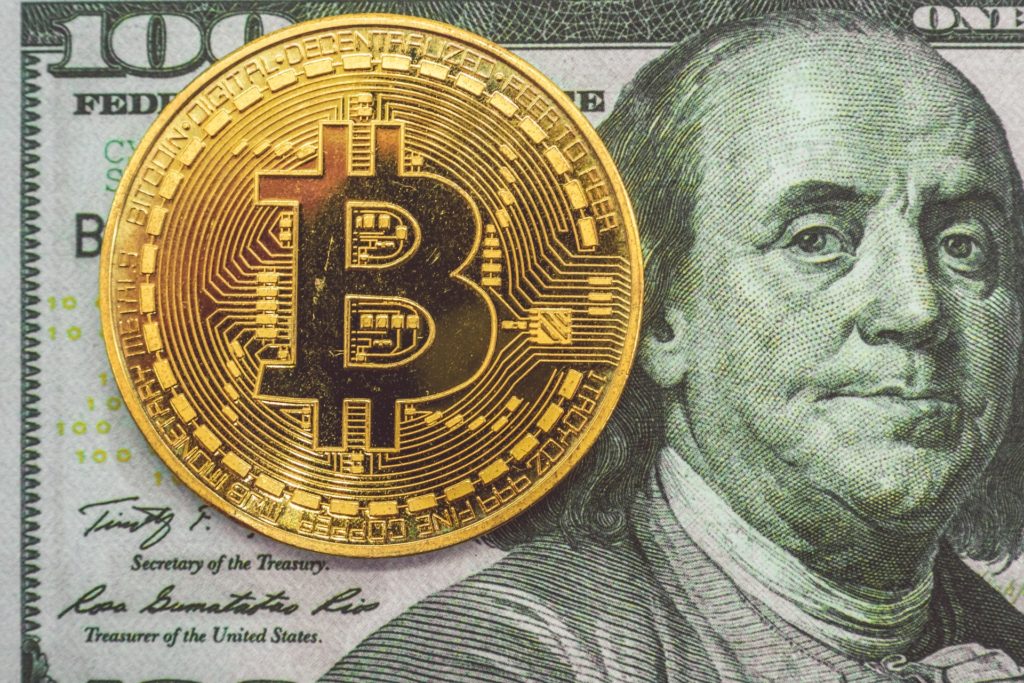“You have 24 hours to withdraw your funds, after this your account will be suspended and any remaining funds will be permanently lost.”
So read a recent email to a client of the cryptotrading platform Blockchain.com. The site claims it is the world’s most popular way to buy, hold and use crypto, having dealt with over $620 billion worth of transactions since 2013. In the same email, their client was told this measure was due to “a breach of our terms and conditions”. It did not say by whom, but went on to state: “we are not able to provide any details about individual applications or specific reasons for rejection.”
While many individuals have clearly made significant gains from the rise of cryptocurrency—particularly Bitcoin, which reached an all-time high above $40,000 this year—a great many have also fallen foul of the absence of scrutiny and regulation in this space. The experience of this particular cryptocurrency speculator is poignant because, like many interested in alternative currencies, they are a self-employed freelancer, working with multiple clients and dealing with different regional revenue streams.
For them and millions others, the theoretical tenets of cryptocurrency, if not the reality, could not be more appealing: a decentralised ledger of transactions secured and globally accessible thanks to blockchain. The currency would be impossible for governments to manipulate, and exchangeable with other cryptos and fiat (state) money. Further, because of bitcoin’s creation protocol, which forces each coin to be ‘mined’ with increasing levels of effort and which limits total coins to 21 million, the ‘digital gold’ argument holds some water. Scarcity and demand have created bubble-like volatility, but advocates say these factors will also make the currency a good store of value in time: the volatility we’ve seen so far is just evidence of how high that value could be.
Since its inception, the world around bitcoin has changed. The Covid pandemic has served as a catalyst for digitising work. In such a space, which now encompasses the ‘gig economy’ and the operations of multinational corporations, an accessible, international, self-regulating and technologically proven currency—everything Bitcoin claims to be—should thrive. Yet, for all the utopian overtures, the reality continues to be different.
The experience of the Blockchain.com client is not isolated. The world of cryptocurrency is completely unregulated. While transactions are traceable, ‘ownership’ is almost impossible to prove in the legal jurisdictions most of us live in because legal systems do not recognise cryptocurrency as an asset.
Several years ago, I interviewed a prominent journalist who had fallen foul of this. Having written several columns on bitcoin, advocating its future and explaining how and why they held as many as they did, they awoke one day to find their digital wallet empty: they had been hacked. To their credit, they saw past the event and shared this cautionary tale publicly, even though they probably lost the equivalent of nearly a million pounds in current valuations. Some time later they shared the story of another hack victim who had tragically taken their own life because they believed they had lost the ‘golden ticket’ which would have given them security for life.
Best worst practice
The self-regulation conversation within bitcoin and crypto circles rolls on, but, while champions of these coins continue to emphasise the slow integration with mainstream global payments systems, there is still no consensus on how bitcoin will achieve dominance as a global currency. While the US dollar is many things at once—a store of value, a government promise, a recognition of state power—its real value, its use case, is in its acceptability, almost universally, as currency. There is a reason bitcoin is valued in dollars.

Bitcoin and cryptos continue to remain outside this system. This is a core part of their self-licensed, alternative status that has made them so interesting and such a good critique of the dominance of fiat money. But it will also be their downfall. In working outside, rather than with, established financial engines, the crypto space will continue to harbour exploitative and criminal elements that will defraud smalltime speculators. The biggest beneficiaries in this space have no interest in making cryptocurrencies mainstream.
As an example, some years ago I worked with a financial professional who, around 2010, had purchased a number of bitcoins from three people they believed (though they could not be certain) to be the cryptocurrency’s original ‘creators’. However, while they advocated the technology and theory behind bitcoin, they were firmly sceptical of the reality. Having been a trader themselves, they believed that, once a certain valuation was reached, a ‘pump-and-dump’ cycle would begin whereby savvy investors could inflate a market only to short it, benefiting from repeat bubbles and the opaque volatility rationale that kept bringing in so many speculators. The main purpose of bitcoin would be to create arbitrage and move money from the inexperienced to the experienced via the same cynical financial methods used by the Wall Street hedge funds to which bitcoin wanted to be anathema.
They saw this pattern beginning once bitcoin reached $10,000, and that was when they exited with a substantial sum and a profit margin of several thousand percent. They also pointed to how exchange traded funds (‘ETFs’: tacking funds which would buy whole indexes) would bring a huge amount of investment into the crypto space without due diligence in terms of valuation. These ETFs would essentially buy a little bit of every cryptocurrency and package this as ‘tracking’ the index of a whole asset class. While this works for shares of real companies listed on the stock exchange, i.e. a FTSE 100 ETF, for crypto it just gave spurious value where there was none—the creators of the likes of Shitcoin and Concoin would have been delighted. This investment style, for all its good intentions of making a new space accessible to investors, encouraged people to create and list coins with zero practical use, solely for them to be sold into ETFs.
Always the future

For all its promises, the reality is that cryptocurrency remains a shady space. No serious investor denies the potential of blockchain or the power of the ideas exposed by bitcoin and its early pioneers. But currency, as with everything that can be valued, is corruptible. Late last year, Chinese tycoon Jack Ma gave a speech to the Bund Finance Summit in Shanghai which became noted for his perceived criticism of state regulation. Less noted were his comments on the future of money:
“We have to ask ourselves ‘what problems are we trying to solve by introducing digital currency?’ Digital currency ten years down the road is probably very different from digital currency today. It should not come from regulators or research institutes—it should come from markets and real needs.”
The digitisation of pounds, dollars or yuan is different from cryptocurrency, but the road Ma refers to, with all its potholes, has been illuminated by bitcoin and its peers. This is why central banks such as the Bank of England have been running digitisation committees, and why the facilities demonstrated by cryptocurrency continue to be so intriguing. But try telling that to the Blockchain.com client waiting to get his bitcoin back two months after it went missing — during which time $10,000 was added to, and then taken away from, the trading price. This does not feel like a futuristic experience.
The challenge for bitcoin is whether it wants to continue as a receptacle for ‘outsider’ sentiment, or to bring its alternatives ‘in-house’, where they can be applied and regulated by financial systems. As a decentralised libertarian phenomenon, there is no-one to make that call: at once the cryptocurrency’s best and worst feature. Bitcoin can be a pious example of monetary anarchy or the future of currency: but it can’t be both.

